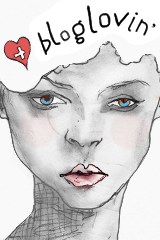 |
| Source |
Rabbits are all different — some may have health problems as they age while others won’t have any. Be prepared, and know which signs are a concern.
1. More napping: Rabbits tend to nap more as they get older. You may notice that your rabbit takes longer naps or naps more often. This is totally normal and just part of getting old. Do make sure, though, that you have a nice soft thick bed or pillow for your rabbit to lie on. It needs a choice of several comfy spots to rest.
2. Not getting around as well: Your rabbit may be a little stiffer when getting up from a nap. Maybe he can’t jump up on to the couch with the same spring in his hop, or he no longer races around and does binkies like usual.
Rabbits do get arthritis. If you suspect your bunny might have it, don’t wait to see what happens. Go to your rabbit veterinarian right away. An X-ray will determine if it is arthritis. Your veterinarian can prescribe medication to help with the inflammation and pain, and might suggest other treatments.
3. Not using the litter box: Depending on the severity of the arthritis, your rabbit could be too stiff or suffer too much pain to hop into his litter box. Most rabbits really like their litter box, so change things to allow your pet to continue using the box by purchasing litter boxes that have a low lip. Aside from providing a more easily accessible box, everything else remains the same — use a rabbit-safe litter and pile hay on top of it.
4. Not grooming like normal: Sometimes senior rabbits topple over when grooming and have a hard time keeping themselves clean. You may notice white flakes on the skin like dandruff, urine on the fur on the inside of the back legs and poop stuck to their bottom. This occurs because it may be harder for your rabbit to balance, bend, twist around and sit to groom. You can help by brushing your rabbit often to get all the loose hair off. Senior rabbits usually enjoy a soft scratching all over, too, as it is harder for them to do this themselves.
If your rabbit experiences tooth problems, this can also make it difficult for him to groom himself.
Keep your rabbit’s toenails trim to help him get around better. Plus, keep his scent glands cleaned out. Wax may build up in the ears, too. Ask your veterinarian to show you how to gently take out any wax buildup.
A senior rabbit is more prone to get fur mites. If you see white flakes on your rabbit’s skin, take him to a veterinarian to check for mites and get treatment.
5. Weight changes: Older rabbits may gain weight due to eating the same amount of food, but not getting as much exercise. Or, they can lose weight. Stick to offering your rabbit a healthy diet, but you may have to make some changes as he ages. Consult with your rabbit’s veterinarian before making any changes.
If your rabbit is overweight, encourage exercise and cut out any high-sugar treats. Being overweight causes a higher risk of heart disease. Plus, overweight rabbits are more prone to sore hocks.
If you rabbit is underweight, increase your rabbit’s pellet portion a little to help him gain weight. Don’t overdo the pellets, however, because you still want your rabbit eating lots of hay. You may try switching to an alfalfa-based pellet, which contains more calories. If your rabbit is having urinary tract problems, bladder sludge or stones, always check with your veterinarian before switching, because in addition to more calories, alfalfa pellets are higher in calcium, too.
Try new healthy treats, but be careful not to overdo it. Often a rabbit’s likes and dislikes change, and a rabbit can become a picky eater. At the Bunny Bunch Boutique, we offer special blends of hay that include herbs and flowers to encourage more hay eating. We also have a healthy line of treats that help keep rabbits interested in eating.
If your rabbit isn’t gaining weight after making the above changes, try a small amount of plain oats to encourage eating and weight gain. Again, consult with your veterinarian before making a change.
Weigh your rabbit often to track his weight loss or gain. Mark the weights on a calendar, and take this with you to show your veterinarian.
6. Not seeing as well: Rabbits do get cataracts and can go totally blind. In my experience, most rabbits adjust very well to blindness. To assist such rabbits, keep their living quarters set up the same way so that they know where to find everything. This helps them know where everything is and minimizes the chances that they’ll bump into anything.
Source: Caroline Charland for SmallAnimalChannel
Excerpt from the annual magazine Rabbits USA, 2011 issue








0 comments: